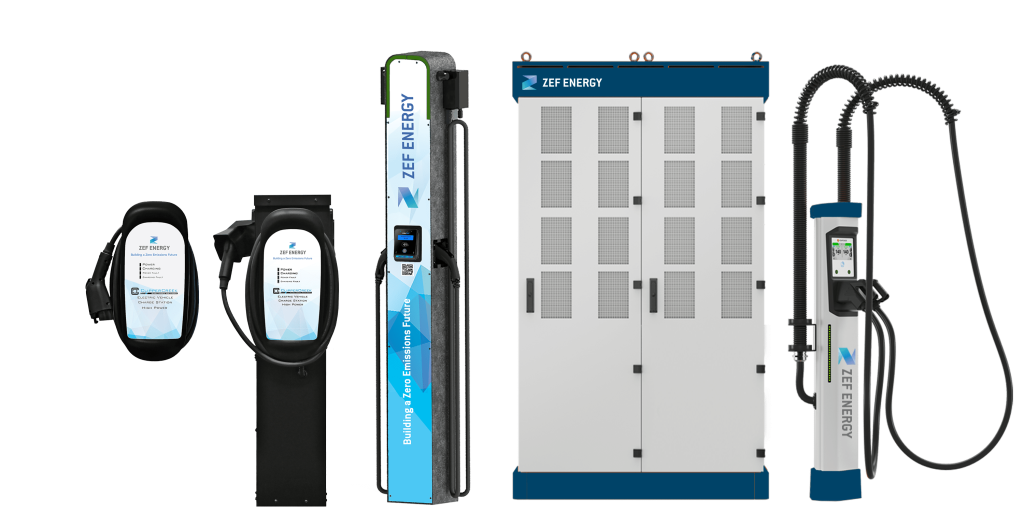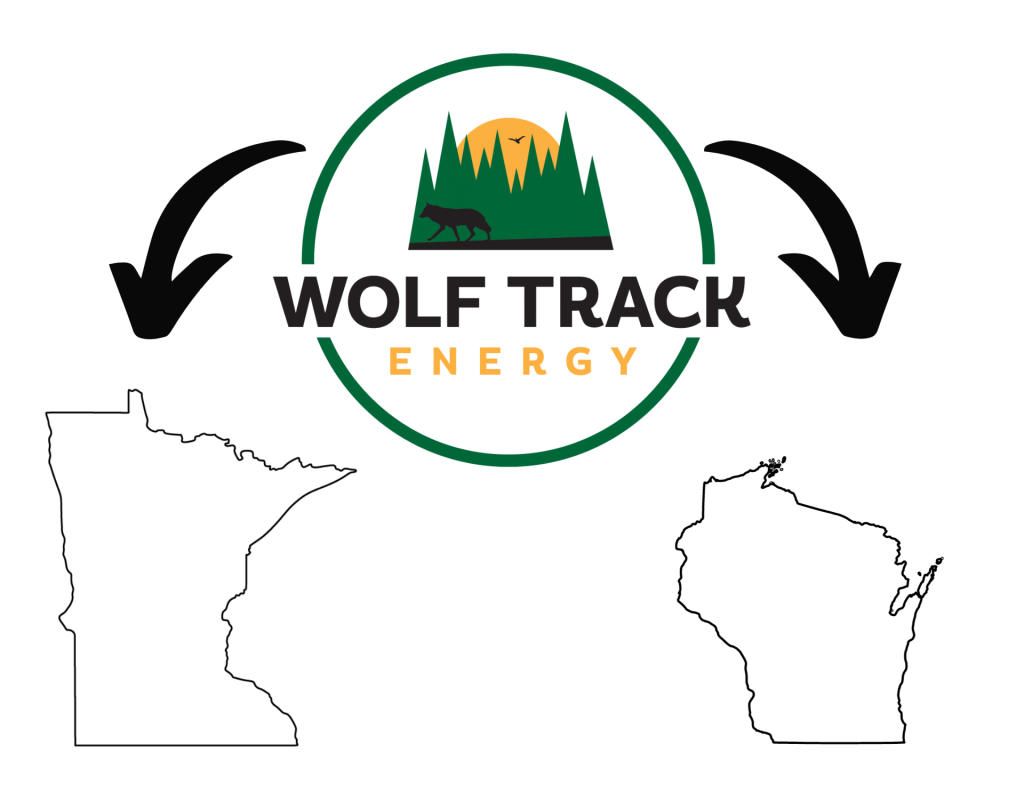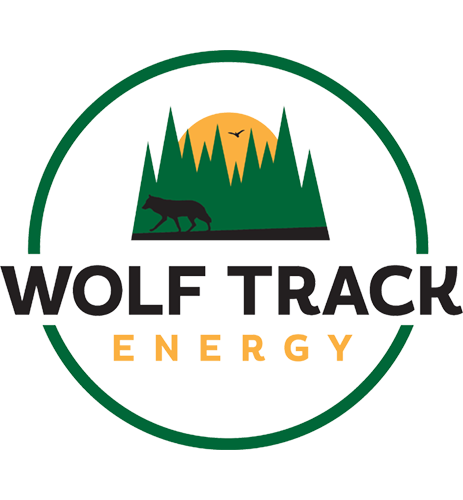EV charging stations
At Wolf Track Energy, our mission is to make it easier for everybody to get behind the wheel of an electric vehicle. We do that by installing EV charging stations.
Since charging an EV takes longer than filling a tank of gas, batteries are most often replenished at home. But plugging in an electric vehicle isn’t necessarily as simple as charging your phone at night.
Standard chargers, known as Level 1, may only add a few miles of charge for every hour the car is plugged in. Level 2 chargers can charge electric vehicles much faster, helping you stay on the road longer.
That’s where we come in. The experts at Wolf Track Energy can come up with the right system for your needs to get your vehicle charged quickly.
We’ll consult with you on the electrical system in your garage or parking lot and find the any special rates your power company may offer for vehicle charging to ensure you’re taking full advantage of your EV.

Transporting the Future
Once something of a novelty, EVs are becoming a mainstream mode of transportation. Car manufacturers are developing more EV models and charging stations are becoming more common. Not only are they more environmentally friendly than gas-powered vehicles, EVs can also have lower fuel costs and require fewer trips to the shop for maintenance.
Buyers of new EVs are eligible for up to a $7,500 tax credit, and purchasing a used EV can result in a $4,000 tax credit.
For business owners, EV chargers can help attract new customers, increase revenue and increase property values.
It’s no wonder that EV sales are expected to keep growing. Bloomberg predicted that EVs will make up more than half of vehicle sales by 2030. And plans are underway for more fast-charging stations around the country.
If you’re ready to join the future of transportation, contact us below to learn more about our EV charging installation services.

Commercial EV Chargers
Wolf Track Energy has partnered with Minneapolis-based ZEF Energy to provide a commercial EV charging solution for customers across the Northland.
As more people buy electric cars and trucks, demand for chargers will grow as well. By installing an EV charger at your business, you can attract new customers and keep your existing ones coming back.
ZEF Energy offers Level 2 and DC fast-charging options for businesses that come with a 5-year warranty. And their ZEFNET software allows you to oversee billing and manage electrical loads.

Frequently Asked Questions
That question doesn’t have a straightforward answer. Not only does it depend on what kind of charger you’re connecting to, it depends on the car you’re driving. Broadly speaking, the more power you can deliver to your vehicle, the faster it will charge. That’s why the circuit in your garage or at your parking spot matters. It also depends on if you’re using a Level 1 or Level 2 charging system. The latter charges your vehicle much faster. It does take longer to charge an EV than fill up a tank of gas, but drivers often replenish their batteries at home while they sleep. While there’s no one-size-fits-all answer to this question, we can help talk you through the ins and outs of installing an EV charging system at your home or business. What you’re referring to is “range anxiety,” and it’s a common concern among prospective EV buyers. Electric vehicles batteries last for a certain number of miles before needing to be recharged, but that number will depend on the model. In that way, it’s not so different than the differing miles-per-gallon rating of gas-powered cars. And like gas mileage ratings, EV range has been increasing in recent years. The median range in 2020 was more than 250 miles, according to federal data. And while most of EV charging takes place at home, more public EV chargers are being built. That includes plans for the northeastern Minnesota region. ChargeHub has a helpful map that shows nearby public charging stations. But it’s more likely you’ll do the bulk of your EV charging at home. That’s why it’s important to have a system that will quickly charge your batteries. While EVs may cost more upfront, it costs less to fuel them. The reason is that electricity is cheaper than gas. The Union of Concerned Scientists said in 2017 that drivers could save somewhere between $400 and north of $1,000 per year in fuel costs by going electric. You can also use this tool from the U.S. Department of Energy’s compare your vehicle and an electric one. In terms of carbon emissions, there’s no contest between EVs and gasoline-powered cars. EVs are responsible for fewer carbon emissions than gas-powered cars, because the grid is increasingly shifting away from fossil fuels. Per vehicle in Minnesota, EVs have about a third of the carbon emissions than that of traditional vehicles.

Service Area
Minnesota
- Duluth
- Two Harbors
- Silver Bay
- Grand Marais
- Ely
- Grand Rapids
- Hibbing
- Virginia
- Moose Lake
- Brainerd
- Bemidji
- Walker
- Alexandria
- Detroit Lakes
- Moorhead
- Fergus Falls
- Wadena
- East Grand Forks
Wisconsin
- Superior
- Ashland
- Bayfield
- Washburn
- Solon Springs
- Hayward

